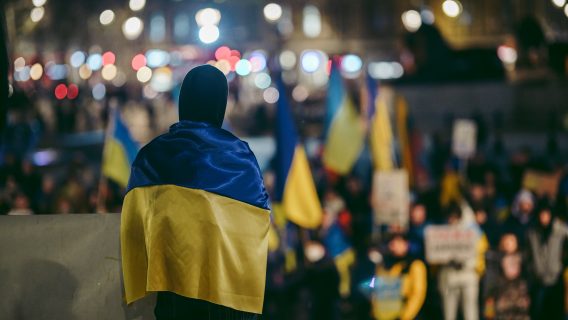It was a cold, misty morning in London when news alerts began flooding the screens of citizens across the United Kingdom. Headlines screamed of a crisis that had only ever been considered in history books and political thrillers: Russia Declares War on UK. A wave of shock and disbelief spread across the country as officials scrambled to assess the situation and prepare a response. How had relations between the two nations, already tense but managed through diplomacy, deteriorated so rapidly? Moreover, what would this mean for the UK, Europe, and the world?
This article will examine the geopolitical, economic, and military implications of such a hypothetical scenario. By analyzing existing data on military capabilities, NATO alliances, and economic interdependence, we can explore what might happen if relations between Russia and the UK reach such a breaking point. This exploration draws on real-world statistics and credible sources to outline the potential consequences of a full-scale conflict between these two global powers.
A Brief Background: UK-Russia Relations
The United Kingdom and Russia have a complex, often fraught history. The Cold War saw the two countries on opposite sides of the Iron Curtain, with the UK aligned with the West and Russia (then the Soviet Union) as a leading force in the Eastern Bloc. Even after the fall of the Soviet Union, relations between the UK and Russia remained cautious, if not hostile, marked by disagreements over human rights, intelligence operations, and foreign policy issues.
More recently, tensions spiked with events like the 2018 Salisbury poisoning of former Russian spy Sergei Skripal, allegedly by Russian agents. This incident led to a wave of diplomatic expulsions and sanctions from the UK and its allies, further deteriorating the relationship. According to a 2022 poll by the Pew Research Center, 73% of Britons viewed Russia unfavorably, reflecting the strained public perception as well (Pew Research Center, 2022).
Military Capabilities: Russia vs. the United Kingdom
Military capabilities would be a critical factor in a hypothetical conflict between Russia and the United Kingdom. Both countries possess powerful, though very different, armed forces. Let us examine some statistics and critical areas for comparison.
- Nuclear Deterrence
Russia is one of the world’s top nuclear powers, with an estimated 5,889 nuclear warheads as of 2023, including both deployed and reserve stockpiles (Arms Control Association, 2023). The UK, by comparison, has a smaller nuclear arsenal, with around 225 warheads, though only 120 are operationally available at any time (UK Ministry of Defence, 2023). The UK’s nuUK’sr capability is entirely submarine-based, relying on its fleet of Vanguard-class submarines for a continuous-at-sea deterrent.
In the event of a confrontation, both countries would likely adhere to the principle of Mutually Assured Destruction (MAD), meaning that neither side would find it strategically beneficial to use nuclear weapons due to the catastrophic retaliation that would follow. However, Russia’s sheer scale, paired with its proximity to Europe, would create a significant threat.
- Conventional Armed Forces
In terms of conventional forces, Russia has a substantial advantage in the workforce. According to Global Firepower, Russia has around 850,000 active-duty military personnel compared to the UK’s 14UK’s0 (Global Firepower, 2023). Additionally, Russia maintains a massive inventory of tanks, artillery, and aircraft, giving it a quantitative edge.
However, the UK benefits from its advanced technology and well-trained professional military. The British Army, Royal Navy, and Royal Air Force are highly respected for their efficiency and technological sophistication. The UK’s arUK’sl includes Typhoon fighter jets, Challenger 2 tanks, and state-of-the-art anti-air and anti-ship systems. Though outnumbered, the UK’s military forces are highly interoperable with NATO, giving them a technological edge in a potential conflict.
- Alliances and NATO Involvement
In the event of an attack, the UK would likely invoke Article 5 of the NATO Treaty, which states that an attack on one member is considered an attack on all. With NATO’s NATO’sed forces, including the United States, France, and Germany, Russia would face overwhelming opposition. NATO has a collective defense spending of over $1 trillion, with the US alone contributing $800 billion annually (NATO, 2023). Russia’s defense budget, in contrast, is around $65 billion (Stockholm et al. Institute, 2023).
While Russia has formidable conventional forces, the combined strength of NATO, with its advanced technology, airpower, and naval assets, would significantly tip the scales against Russia in a conventional conflict.
Economic Consequences of a Russia-UK Conflict
Beyond military aspects, a hypothetical war between Russia and the UK would have far-reaching economic impacts on the two nations and the entire world.
- Energy Dependence and Global Markets
Europe has historically relied on Russian natural gas, though the reliance has decreased in recent years due to geopolitical tensions and a shift toward renewable energy. The UK imports less than 5% of its natural gas from Russia, but a conflict could still lead to severe supply disruptions across Europe, pushing energy prices to record highs. According to Eurostat, a 2023 conflict with Russia could raise energy costs in Europe by 30% or more due to supply chain disruptions (Eurostat, 2023).
This energy crisis could worsen inflation across the continent, as industries dependent on fuel would struggle to maintain production. For the UK specifically, the cost of living would rise, and industries like manufacturing and transport could suffer significant setbacks.
- Trade Sanctions and Financial Market Instability
The UK and its allies would likely impose heavy sanctions on Russia, mirroring the extensive sanctions placed after the 2022 invasion of Ukraine. Sanctions could target Russian banks, oil exports, and significant industries, cutting off Russia from Western financial systems and severely impacting its economy.
According to International Monetary Fund estimates, Russia, which had previously weakened its sanctions, could shrink by as much as 10-15% under a comprehensive sanctions regime (IMF, 2023). However, retaliatory sanctions from Russia, such as restrictions on critical raw materials exports, could also affect the UK economy, potentially leading to a 2-3% GDP contraction (Office for National Statistics, 2023).
- Stock Market Volatility
Global financial markets would react with extreme volatility to a Russia-UK conflict. Investors often retreat to safer assets during war, leading to worldwide stock market declines. As investors pull out, the FTSE 100 (the UK’s stock index) could decline 10-20%. At the same time, the Russian MOEX index might face even steeper drops due to sanctions and economic isolation.
Humanitarian and Societal Impact
A hypothetical war between Russia and the UK would bring devastating humanitarian consequences. Although most of the fighting would likely be concentrated away from densely populated areas, cyber-attacks, air strikes, and potential missile threats could bring the war closer to civilian lives.
- Potential Refugee Crisis
In the worst-case scenario, widespread conflict could lead to the displacement of people within Europe. Given the UK’s isUK’s geography, refugees may face limited relocation options, but neighboring countries like Ireland and other NATO nations would likely see an influx of displaced persons.
- Cyber Warfare and Infrastructure Disruption
Russia has demonstrated its cyber capabilities in past conflicts, and the UK, as a highly digitized nation, would be a prime target for cyber-attacks. Russia could target critical infrastructure, including energy grids, financial systems, and telecommunications. According to the UK’s NaUK’sal Cyber Security Centre, a large-scale cyberattack could result in billions of pounds in economic losses and disrupt essential services for weeks (NCSC, 2023).
- Civilian Casualties and Psychological Toll
While both Russia and the UK might avoid direct civilian-targeted attacks, the stress and psychological impact of a potential war on the public cannot be ignored. Studies show that prolonged periods of conflict increase rates of anxiety, depression, and PTSD among civilian populations. According to a study by the British Psychological Society, even indirect involvement in conflicts can lead to lasting mental health impacts on citizens (British et al., 2023).
Conclusion: A Warning from a Hypothetical Scenario
While a full-scale war between Russia and the UK is currently purely hypothetical, considering such a scenario reveals the grave consequences of unchecked geopolitical tensions. Military conflicts today have global repercussions, affecting economies, societies, and international alliances far beyond the immediate participants.
The best path forward for Russia and the UK remains diplomacy, cooperation, and open communication channels. In an interconnected world, the cost of war is simply too high, with devastating impacts that neither country nor its allies can afford. This thought experiment serves as a reminder of the importance of diplomatic efforts and peaceful conflict resolution. With mutual respect and restraint, nations can avoid the horrors of war and work together towards a more stable and prosperous world.



